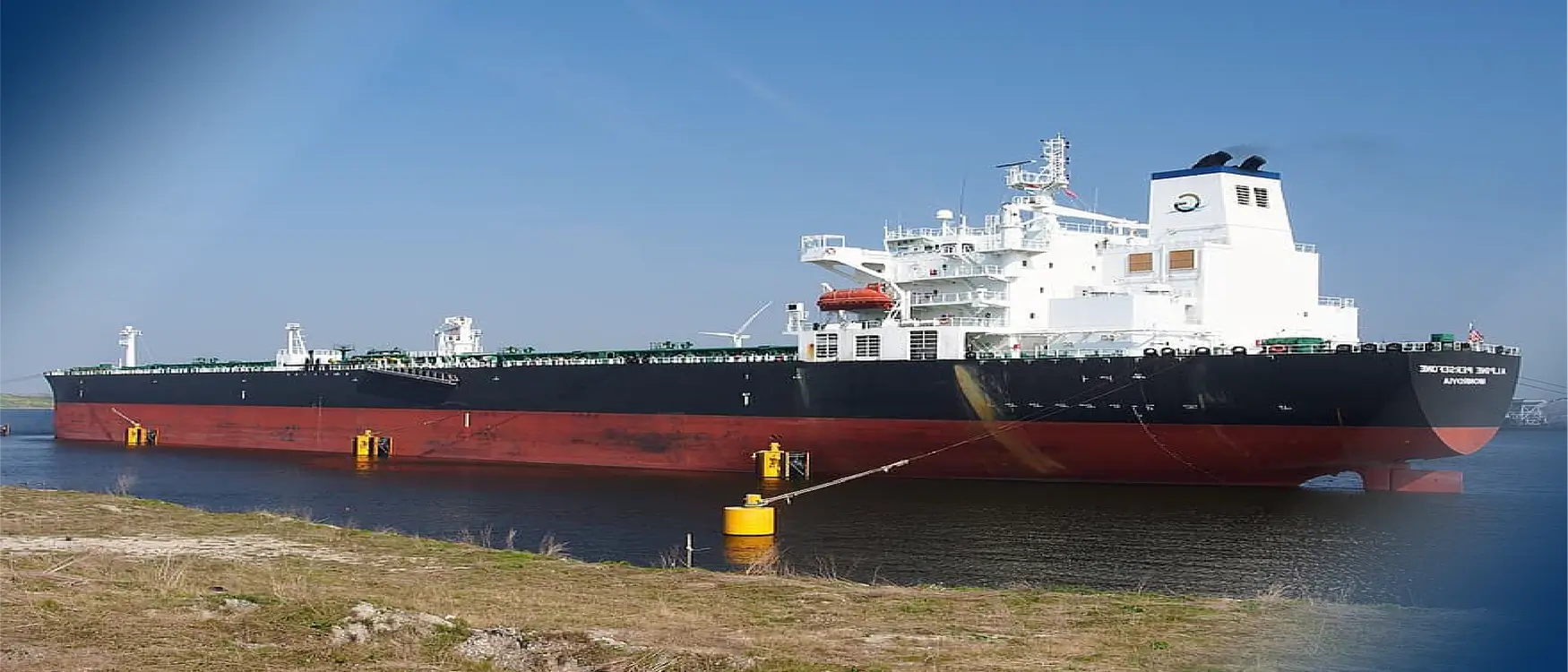Liquid Cargo Simulator Refresher Training (Oil)
This refresher training for the IMO Model Course 2.06 Liquid Cargo Operations Simulator (LICOS) provides real-time, oil cargo handling, replicating all operational parameters and scenarios using advanced mathematical modeling and simulation technology, to meet TMSA level 4.

Description
Our Liquid Cargo Operations Simulator (LICOS) offers real-time simulation of the process flow control system used in the storage and transfer of hazardous bulk liquid cargoes between shore, ship, and other ships as needed. LICOS accurately replicates operational conditions, including temperature, pressure, levels, flow rates, statistical data, and valve timing, ensuring simultaneous control of all parameters.
LICOS provides a comprehensive and realistic training environment. It addresses critical competencies such as planning and monitoring the loading process on crude carriers and product tankers, ensuring care during the loaded voyage, discharging cargo, adhering to pollution prevention regulations, and maintaining vessel seaworthiness in terms of stability, stress, and trim. This technology prepares users for the safe and efficient handling of hazardous liquid cargoes.
Certification Details
Certificate of Approved Refresher Training for IMO Model Course 2.06 Oil Tanker Cargo and Ballast Handling Simulator (LICOS – OIL)
Content
- Plan and execute the safe loading and discharging of liquid cargo.
- Demonstrate understanding of how cargo and handling procedures impact a ship’s seaworthiness and stability.
- Showcase knowledge of liquid cargo care, including handling various commodities in port and during voyages.
- Perform stability, trim, and stress control calculations effectively.
- Demonstrate knowledge of cargo handling equipment and systems.
- Understand the principles and procedures for the safe handling of ballast and bunkers across all ship types.
- Develop and implement cargo plans, ensuring safe loading, stowage, and unloading of cargoes.
- Apply pollution prevention measures to protect the marine environment.
- Maintain ship stability and seaworthiness during operations.
- Understand the design and operational systems of ships, including pump and piping systems.
- Operate ballast and cargo handling systems safely and efficiently.
- Analyze the characteristics of transferred media to ensure proper handling and transport.
- Conduct routine ship operations and respond to emergencies effectively.
- Safely handle, stow, and secure dangerous, hazardous, and harmful cargoes.
- Demonstrate general knowledge of tankers and their operations.
Delivery
1 day classroom, on-site or online.
Because an OOW is based around the control room, online isn’t the obstacle for LICOS that it would be for a BRM course.
For on-site delivery, please get in touch.
Who is it For?
Deck Officers on tankers
Want to run this event in-house? Enquire about running this event in-house
Interested in attending? Have a suggestion about running this event near you?
Register your interest now
Suggested Courses For You
Approved Bridge Resource Management & Ship Simulator Refresher Training Course (BRM / SSBT)
A refresher course for The IMO Model Course 1.22 Bridge Resource Management & Ship Simulator Training is designed for maritime bridge personnel, aligned with the framework of the International Maritime Organization (IMO). The course complies with the latest requirements of the STCW Convention (1978, as amended by the 2010 Manila Amendments) and incorporates updates per SIRE 2.0 standards.
Approved Celestial Navigation Refresher
Boost your maritime skills with our 1-day Approved Celestial Navigation Refresher Training Course, designed for professional seafarers and navigation officers. This intensive refresher meets international standards and is ideal for those needing to update their knowledge in line with STCW and flag state requirements. Delivered by experienced instructors, the course covers essential celestial navigation techniques, including the use of sextants, sight reduction, and plotting.
Approved Emergency Navigation
Stay prepared for critical failures with our 1-day Approved Emergency Navigation Course, specifically designed for officers serving on paperless ships operating without traditional paper charts. This practical training equips bridge teams with the essential skills and procedures to safely navigate in the event of total ECDIS failure.

